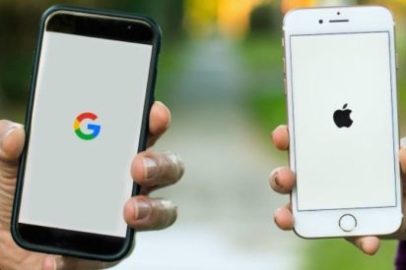Apple’s progress on maps, search, and online advertising on iOS is a historical challenge against Android.
The two Silicon Valley giants have been rivals in the smartphone market since Google popularized the Android operating system in the 2000s. Apple co-founder Steve Jobs called it a “stolen product ” that mimicked iOS mobile software, then declared “thermonuclear war” on Google, ousting then-CEO of the search firm Eric Schmidt from Apple’s board in 2009.
The disagreements seemed settled, but two former Apple engineers said that the grudge is far from dormant. Apple is still engaged in a ” silent war ” against its arch-adversary, and it’s doing so by developing features that could bolster its mobile operating system.
First Front: Maps
The first front in this battle is mapping, which began in 2012 when Apple released Maps, replacing its rival Google as the pre-downloaded app. However, the numerous defects found led CEO Tim Cook to say he was “extremely sorry for the frustration this has caused customers.”
Over the past decade, Apple Maps has gotten better. In early January, the Business Connect feature was announced, allowing companies to claim their digital location to interact with users, view photos, and offer promotions. This a direct challenge to Google Maps, which partners with recommendation platform Yelp to provide similar information and earns revenue from advertising and referral fees.
But Business Connect goes further by leveraging Apple’s operating system to offer iOS users features such as integration with Apple Pay or Business Chat, a text-based conversation tool for commerce.
Second Front: Research
Apple is increasingly incentivized to establish itself in the search sector as well, mainly under the guise of consumer privacy. He has worked extensively on a feature known as ” Apple Search, “a tool that would facilitate “billions of searches” daily.
Apple’s research team saw the light in 2013 with the purchase of Topsy Labs, a start-up that had indexed Twitter to enable research and analysis. Now the technology is used whenever an iPhone user asks the Siri voice assistant for information, types a query from the home screen, or uses the Mac’s “Spotlight” search feature.
The offer was expanded in 2019 with Laserlike, an AI start-up founded by former Google engineers that set out to provide “high-quality information and different perspectives on any topic from the entire web.”
Apple could quickly bite into Google’s 92% share of the search market for 1.2 billion iPhone users. It would be expensive, though. According to the US Department of Justice, Alphabet pays Apple between $8 and $12 billion yearly to make Google the default search engine on iOS.
Third Front: Online Advertising
The third front in Apple’s battle may prove to be the most devastating: its ambitions in online advertising, where Alphabet makes more than 80% of its revenues.
Last summer, Apple was looking for a professional who could lead the platform’s design that allows advertisers to buy ad space on multiple exchanges.
This signals that Apple wants to build a new ad network to reshape how ads are served to users and keep third-party data brokers out of the loop, which would line up nicely with its new privacy policy.


